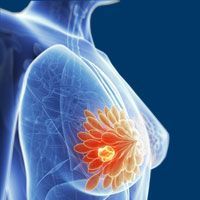- Advertise
- About OncLive
- Editorial Board
- MJH Life Sciences brands
- Contact Us
- Privacy
- Terms & Conditions
- Do Not Sell My Information
2 Clarke Drive
Suite 100
Cranbury, NJ 08512
© 2025 MJH Life Sciences™ and OncLive - Clinical Oncology News, Cancer Expert Insights. All rights reserved.
Dr. Spring on the Rationale for the AMEERA-1 Trial in ER+/HER2- Advanced Breast Cancer
Laura Spring, MD, discusses the rationale for the ongoing phase 1/2 AMEERA-1 trial in estrogen receptor–positive, HER2-negative advanced breast cancer.
Laura Spring, MD, attending physician, Medical Oncology, Massachusetts General Hospital, instructor of medicine, Harvard Medical School, discusses the rationale for the ongoing phase 1/2 AMEERA-1 trial (NCT03284957) in estrogen receptor (ER)–positive, HER2-negative advanced breast cancer.
The AMEERA-1 trial is evaluating the novel, oral selective ER degrader (SERD) amcenestrant as a single agent and in combination with other anti-cancer therapies, such as the CDK4/6 inhibitor palbociclib (Ibrance) in postmenopausal women with ER-positive/HER2-negative advanced breast cancer, Spring says. The development of oral SERDs has been an area of research in this patient population and evaluating combination regimens with these agents is a logical next step to build upon single-agent activity.
During the 2021 San Antonio Breast Cancer Symposium, updated findings from AMEERA-1 were presented in a virtual poster. The results showed that giving 200 mg of amcenestrant in combination with the approved dose of palbociclib demonstrated a median progression-free survival of 14.7 months at a median follow-up of 14.8 months. The overall response rate with the combination was 32.4% and the clinical benefit rate was 73.5%.
Safety findings were consistent with previous results, suggesting that amcenestrant is well tolerated in this patient population and should be further evaluated in combination regimens, Spring concludes.


